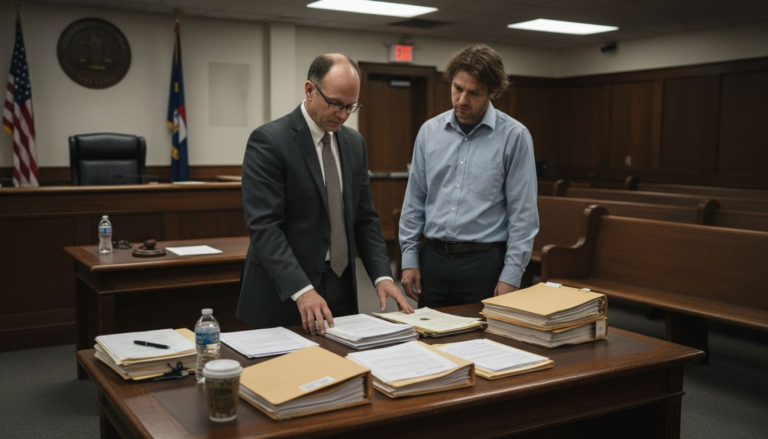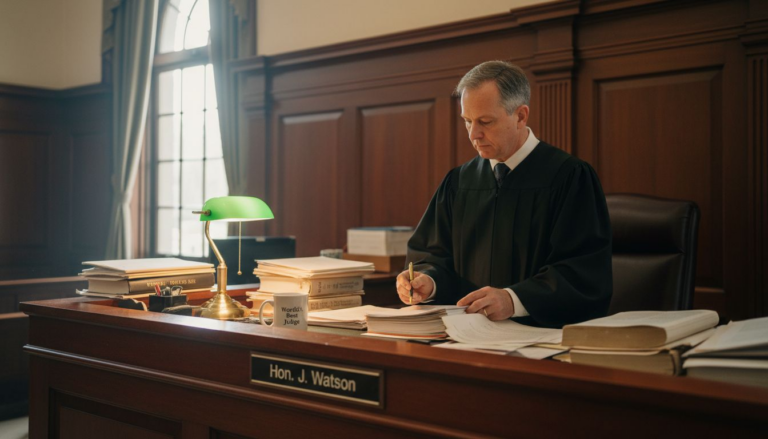After an arrest, posting bail is often the only way to avoid sitting in jail while awaiting trial. But what happens if the bail is set too high for you or your family to afford? The good news is: North Carolina law allows for bail reductions—but you’ll need the help of a skilled defense attorney to pursue it. At King & Rowe, Attorneys at Law, we’ve helped clients throughout Hickory, Burke, Caldwell, and Catawba County reduce excessive bail and return home faster.’
What Is a Bail Modification Hearing?
A bail modification hearing is a formal request to lower your bail amount or change your bond conditions. This hearing can be requested by your defense attorney if:
- Your bail was set too high for the offense
- You have no criminal history or prior failures to appear
- New evidence has emerged
- You have strong ties to the community (job, family, church involvement)
If you’re looking for “local criminal defense attorneys near me” with experience in North Carolina bail procedure, King & Rowe is ready to advocate on your behalf.
What Factors Do Judges Consider When Reducing Bail?
During a bail reduction hearing, the judge will reconsider several factors, such as:
- Nature of the offense: Was it violent or non-violent?
- Flight risk: Are you likely to flee the jurisdiction?
- Prior criminal record: Any history of skipping court?
- Ties to the community: Do you live, work, or attend school in Hickory or nearby areas?
- Ability to pay: Is the bail amount unreasonable given your financial situation?
Having King & Rowe, Attorneys at Law present strong documentation—such as proof of employment, community service, or character references—can help persuade the judge to lower the amount.
How to Request a Bail Reduction
Here’s how the process works in North Carolina:
- Hire an attorney – It’s nearly impossible to win a bail reduction without legal help.
- File a motion to modify bond – Your attorney must formally request a hearing with the court.
- Prepare evidence – You may need letters from employers, pay stubs, family support statements, or proof of stable housing.
- Attend the hearing – Your lawyer will argue your case before a judge.
Our Hickory-based defense attorneys at King & Rowe, Attorneys at Law are well known in the local courts and know how to tailor arguments that resonate with judges and magistrates across Catawba, Caldwell, and Burke Counties.
What If Bail Is Still Too High?
If your initial request is denied, you still have options:
- Appeal to a higher court
- Request a different form of release, like an unsecured bond or supervised release
- Negotiate with the prosecutor for alternative conditions
Some cases may even qualify for release with no monetary bond, depending on the facts and prior history.
Why You Need a Local Attorney Who Understands Bail
The success of your bail reduction motion often depends on how well your attorney understands the local courts. At King & Rowe, Attorneys at Law, we’re not just experienced—we were born and raised in Hickory. We regularly represent clients in bond hearings in Newton, Morganton, Lenoir, and surrounding areas.
Facing an Unaffordable Bail? Call King & Rowe, Attorneys at Law Today
If you or a loved one is being held on excessive bail, don’t wait. Let us advocate for your release and build a strong defense. We’re trusted local attorneys who fight hard from day one.
📞 Call King & Rowe, Attorneys at Law – 828-466-3858
📍 Serving Hickory, Catawba County, Burke County & Caldwell County
🌐 https://www.kingrowelaw.com “Attorneys near me for bail help”



